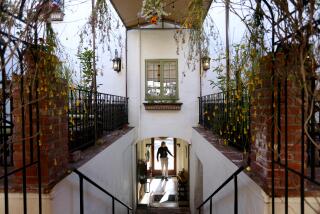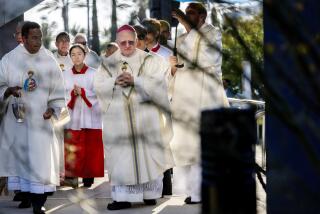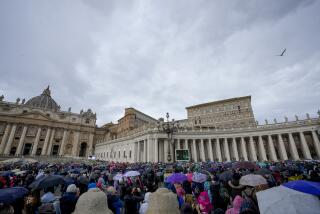Ruckus Over Selling a Church : Honolulu Mayor Takes On Bishop, Japanese Investors
- Share via
Frank F. Fasi, Honolulu’s feisty mayor, has jumped into the fray over the sale of a popular Roman Catholic church to Japanese investors who intend to demolish the building and put up a luxury condominium tower.
The ruckus was kicked off when the bishop of Honolulu decided to sell St. Augustine Catholic Church, which is just across the street from Waikiki Beach, for $45 million, despite the opposition of parishioners.
The fact that the purchaser was a Japanese real estate company fueled the controversy in a city where anger over heavy real estate investment by Japanese has surfaced frequently in recent months.
Fasi, who was reelected last month, entered the dispute with a sharply worded letter this week to the bishop warning that real estate purchases by foreign investors have reached “alarming proportions.”
The mayor, who earlier this year proposed that the state restrict acquisition of residential and agricultural land by foreigners, also cautioned that the purchasers face difficulty obtaining city approval to build a high-rise on the site.
Letter Sent to Bishop
St. Augustine’s seems an unlikely spot for a new outcry. The modern building, with its modernistic, A-frame architecture, was built in 1962 on about three-quarters of an acre across Kalakaua Avenue from Waikiki Beach. Just steps from the famous beach, the church is surrounded by towering hotels, and tourists usually outnumber its 300 families at most Masses.
Hama Kikaku, a Tokyo real estate company, plans to build a high-rise condominium on the site, according to plans discussed with church representatives. Attempts to reach the Tokyo firm by telephone were unsuccessful and its agent in Honolulu did not return telephone calls.
Fasi, recovering from heart surgery, sent a letter to Bishop Joseph A. Ferrario this week in which he accused the church of profiteering and warned about the impact of such sales.
“Purchases of prime land by foreign investors have reached alarming proportions, and the prices paid recently by such investors have escalated beyond reason,” he said in the letter.
Fasi said the result will be inflation of land prices that could drive up the costs of other goods and services beyond the reach of residents and visitors. Honolulu residents already complain that Japanese residential purchases are driving up property taxes.
Fasi’s letter questioned whether zoning restrictions would allow a hotel or condominium project to be built on the site. However, a real estate agent involved in the transaction said the zoning appears to permit a high-rise condominium.
The sale was negotiated by Ferrario despite vehement opposition from parishioners and the order of priests that oversees the church.
“First of all, they are aghast that a sacred place is being sold,” Father Clement Geysen, a priest at St. Augustine’s, said in a telephone interview. “There is a lot of feeling involved. Secondly, they are against selling church property, which is what has been going on.”
Earlier this year, five acres of church land were sold to the local government for about $3 million, and a Japanese investor paid $5 million for the bishop’s former residence.
Vatican Approval Needed
“We are wondering what is the next step,” Geysen said.
A parish delegation left for Rome on Wednesday to air its opposition at the Vatican. The sale contract contains a provision that requires final approval from Rome.
Ferrario was in Europe on Thursday and could not be reached. Earlier, he defended selling the church and using part of the proceeds for social programs, telling a local newspaper, “It’s a question of justice--the haves serving the have-nots.”
Father Clarence M. Liu, the bishop’s administrative assistant, said in a telephone interview that the diocese decided to proceed despite the opposition because of the need to add services in the parish and expand church-sponsored education and social programs.
Liu said $20 million will be used to build a larger church a few blocks from the present St. Augustine’s. The remainder will be used to pay for various church programs, such as scholarships to Catholic elementary and high schools and housing projects.
“We knew that it was going to be controversial. However, I am really saddened by the volume,” Liu said. “It has become a really emotional issue.”
More to Read
Inside the business of entertainment
The Wide Shot brings you news, analysis and insights on everything from streaming wars to production — and what it all means for the future.
You may occasionally receive promotional content from the Los Angeles Times.










